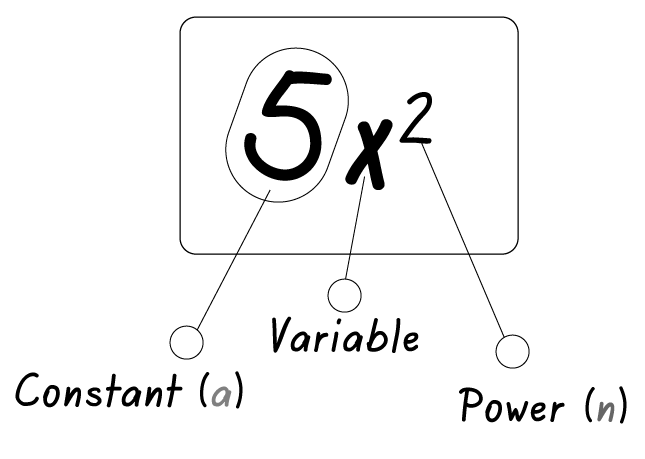
To differentiate a function containing an exponential term, follow these steps:
1. Identify the function you want to differentiate. Let's say we have a function f(x) = e^{3x} .
2. Determine the variable in the function that you want to differentiate with respect to. In this case, we are differentiating with respect to x.
3. Apply the differentiation rules for exponential functions. For e^{ax}., the derivative is ae^{ax}.. In our example, the derivative of e^{3x}[/latex]. with respect to x is 3e^{3x} .
4. Write down the final expression for the derivative. In this case, the derivative of f(x) = e^{3x}. with respect to x is \frac{df}{dx} = 3e^{3x} .
To differentiate a function containing logarithms, you can use the following steps
1. Identify the function containing logarithms that you want to differentiate. Let's say we have a function f(x) = log(x).
2. Use the properties of logarithms to simplify the function if necessary. In this case, the function f(x) = log(x) can be rewritten as f(x) = ln(x) where ln represents the natural logarithm.
3. Apply the differentiation rules of logarithmic functions. The derivative of ln(x) with respect to x is given by the formula:
\frac{d}{dx} ln(x) = \frac{1}{x}
4. Substitute the given function into the derivative formula. In our example, the derivative of f(x) = ln(x) is:
\frac{d}{dx} ln(x) = \frac{d}{dx} ln(x) = \frac{1}{x}
5. Therefore, the derivative of the function f(x) = log(x) is equal to 1/x.
1. Find the derivative of the function f(x) = 2\ln(x) - e^x
f(x) = 2\ln(x) - e^x
To differentiate the function with respect to x, we use the properties of logarithms and the derivative of e^x:
f'(x) = 2 \cdot \frac{1}{x} - e^x
f'(x) = \frac{2}{x} - e^x
Therefore, the derivative of f(x) = 2ln(x) - e^x is f'(x) = 2/x - e^x.
2. Find the derivative of the function g(x) = \ln(x^2) + e^(2x).
g(x) = \ln(x^2) + e^(2x)
Using the chain rule for logarithmic and exponential functions, we differentiate each term separately:
g'(x) = \frac{2}{x} + 2e^(2x)
Therefore, the derivative of g(x) = ln(x^2) + e^(2x) is g'(x) = 2/x + 2e^(2x).
3. Find the derivative of h(x) = 3ln(2x) - 4e^(3x).
h(x) = 3\ln(2x) - 4e^(3x)
Applying the properties of logarithms and the derivative of e^x, we get:
h'(x) = 3 \cdot \frac{1}{2x} - 4 \cdot 3e^(3x)
h'(x) = \frac{3}{2x} - 12e^(3x)
Therefore, the derivative of h(x) = 3ln(2x) - 4e^(3x) is h'(x) = 3/(2x) - 12e^(3x).
4. Find the derivative of the function k(x) = ln(3x) + e^(4x).
k(x) = \ln(3x) + e^(4x)
Differentiating using the chain rule for logarithmic and exponential functions, we have:
k'(x) = \frac{1}{3x} + 4e^(4x)
Therefore, the derivative of k(x) = ln(3x) + e^(4x) is k'(x) = 1/(3x) + 4e^(4x).
5. Find the derivative of the function m(x) = 4ln(x) - e^(5x).
m(x) = 4\ln(x) - e^(5x)
By differentiating with respect to x, we get:
m'(x) = 4 \cdot \frac{1}{x} - 5e^(5x)
m'(x) = \frac{4}{x} - 5e^(5x)
Therefore, the derivative of m(x) = 4ln(x) - e^(5x) is m'(x) = 4/x - 5e^(5x).
Questions and Answer on Differentiation of (e^{ax}) and (ln(ax))
1. \frac{d}{dx}(e^{ax}) = ae^{ax}
2. \frac{d}{dx}(e^{-2x}) = -2e^{-2x}
3. \frac{d}{dx}(e^{3x}) = 3e^{3x}
4. \frac{d}{dx}(e^{2x}) = 2e^{2x}
5. \frac{d}{dx}(ln(ax)) = \frac{1}{x}
6. \frac{d}{dx}(ln(2x)) = \frac{1}{x}
7. \frac{d}{dx}(ln(3x)) = \frac{1}{x}
8. \frac{d}{dx}(ln(4x)) = \frac{1}{x}
9. \frac{d}{dx}(ln(ax^2)) = \frac{2}{x}
10. \frac{d}{dx}(e^{4x}) = 4e^{4x}
11. \frac{d}{dx}(e^{-3x}) = -3e^{-3x}
12. \frac{d}{dx}(e^{5x}) = 5e^{5x}
13. \frac{d}{dx}(ln(5x)) = \frac{1}{x}
14. \frac{d}{dx}(ln(6x)) = \frac{1}{x}
15. \frac{d}{dx}(ln(ax^3)) = \frac{3}{x}
